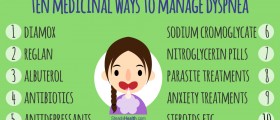
Altitude sickness, also known as mountain sickness, is defined as a pathological effect of high altitudes on humans. Altitude sickness is medically known as hypobaropathy, or soroche, and it is caused by acute exposure to low partial pressure of oxygen at high altitude. Altitude sickness typically occurs at altitudes of above 2,400 meters and it manifests in a series of nonspecific symptoms, resembling a hangover. Most people are feeling normal at altitudes higher than 2,000 meters, and it is very hard to determine who is at the risk of experiencing the symptoms. However, prevention is very important since in some patients, acute altitude sickness progresses to high altitude pulmonary or cerebral edema (accumulation of fluid and swelling), and may be fatal.
Signs and symptoms of altitude sickness
Altitude sickness manifests differently in various people. In most of the cases, symptoms occur six to ten hours after reaching the altitudes of about 2,400 meters. In some patients, the symptoms start at around 2,000 meters. Symptoms typically subside in one or two days but in some patients they can last longer and progress to more severe diseases. Typical symptoms include severe headache, fatigue, upset stomach, dizziness and sleep disturbance. Among all the symptoms, headache is the primary one.
How to avoid altitude sickness
There are many successful ways to avoid and fight the altitude sickness. The headache is often relieved by drinking a lot of water. Headache may occur as a result of dehydration. At high altitudes, people tend to breathe fast and deep and therefore dehydrate more. Therefore, drinking water can bring a considerable relief, by restoring the water in the body. One can easily check if dehydration is causing the symptoms by monitoring the quantity and the color of urine. In cases of dehydration, urine will be darker and person will not urinate very frequently.
It is also important to avoid exercises or any other excess physical effort. This is much better solution than taking medicines and involves saving the energy until the body adapts to high altitudes.
Some herbal remedies can also help. Herbal ingredients including lemon, ginger, garlic and honey are proven effective against the altitude sickness. A glass of sweet lemon soda is also great to prevent and cure stomach upset and vomiting.
It is also helpful to avoid eating foods that are hard to digest. Therefore, people should avoid heavy, oily, spicy and fried foods. It is better to eat healthy and in small portions.

















Your thoughts on this
Loading...